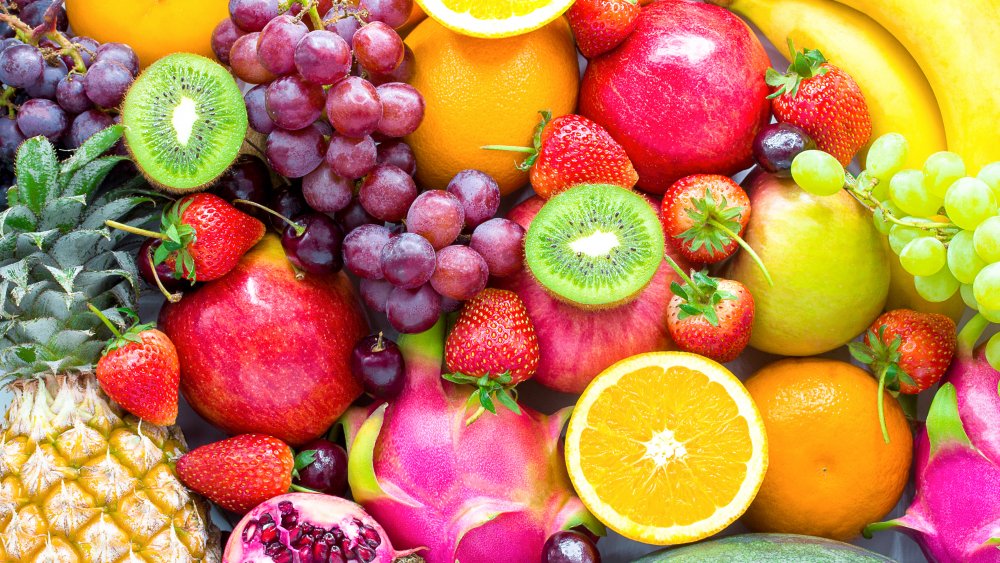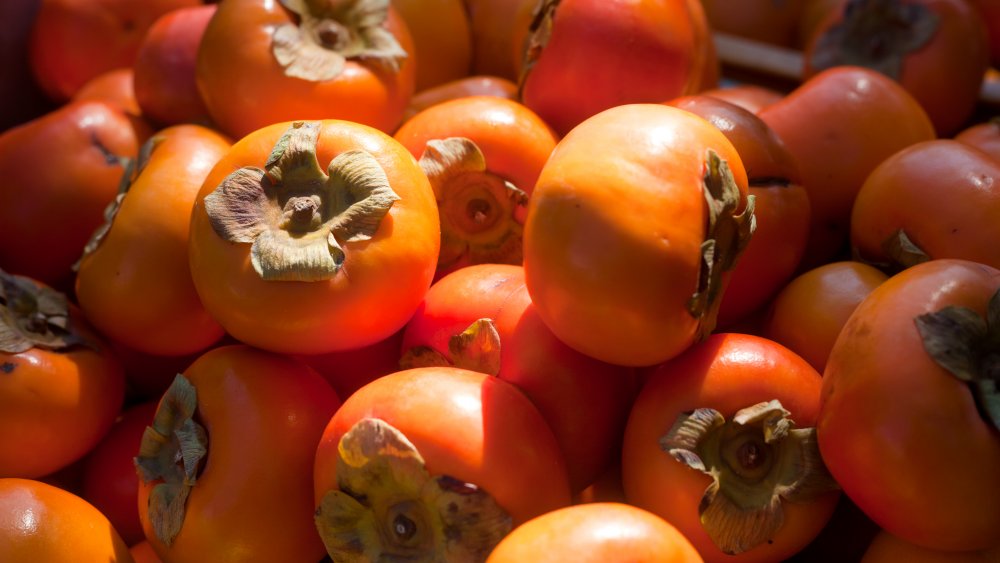The Seasonal Fruit You're Not Eating But Should
Advice from the medical community has long told us that, for our best health, we should eat a colorful diet. There's one fruit that fits that bill and is packed full of nutritional goodness that you may be missing — and it's in season right now. Persimmons have been grown in China for centuries, according to WebMD, but it wasn't until the 1880s that they made their way to U.S. shores.
They're a bright fruit with an orange-reddish color, roughly about the shape of a tomato. A persimmon could easily take the place of your regular apple or plum, and it's a good addition to any well-balanced diet. With just 120 calories per serving, a single persimmon provides 70 percent of the recommended daily allowance of vitamin A, which promotes good vision. It also holds 24 percent of the RDA for fiber and 20 percent of the need for vitamin C.
The skin of a persimmon is rich in antioxidant flavonoids. These compounds have been found to fight heart disease, cognition problems related to aging, and even lung cancer, according to Healthline. In one study that pitted apples against persimmons, the orange fruit was found to have more properties that fight atherosclerosis, according to Science Daily. Atherosclerosis is a major cause of heart attacks and strokes.
Know your types of persimmons
Persimmons are in season in autumn and early winter and typically peak in November, according to the American Heart Association. There are many different types, but two varieties are most likely to show up in a store near you. Both have the same high levels of nutrients, but taste slightly different and can be paired with different foods.
Fuyu persimmons are slightly smaller than their counterpart, Hachiya persimmons, and can be eaten ripe or even slightly firm. They are sweeter and can be eaten like an apple.
Hachiya persimmons are considered astringent and have a tart taste until they are very soft. "They'll suck the moisture out of your mouth, which is not very pleasant," nutritionist Penny Kris-Etherton told the AHA. This variety is generally reserved for cooking or for pairing in salads.
Persimmons are a versatile option for any diet. They're tasty and useful as a snack on their own, paired with breakfast, cooked into dinner, or blended into a smoothie. Add that to the heart health, vision protection, and antioxidant properties, and they're an easy choice. Look for persimmons at your local grocery store this fall.


